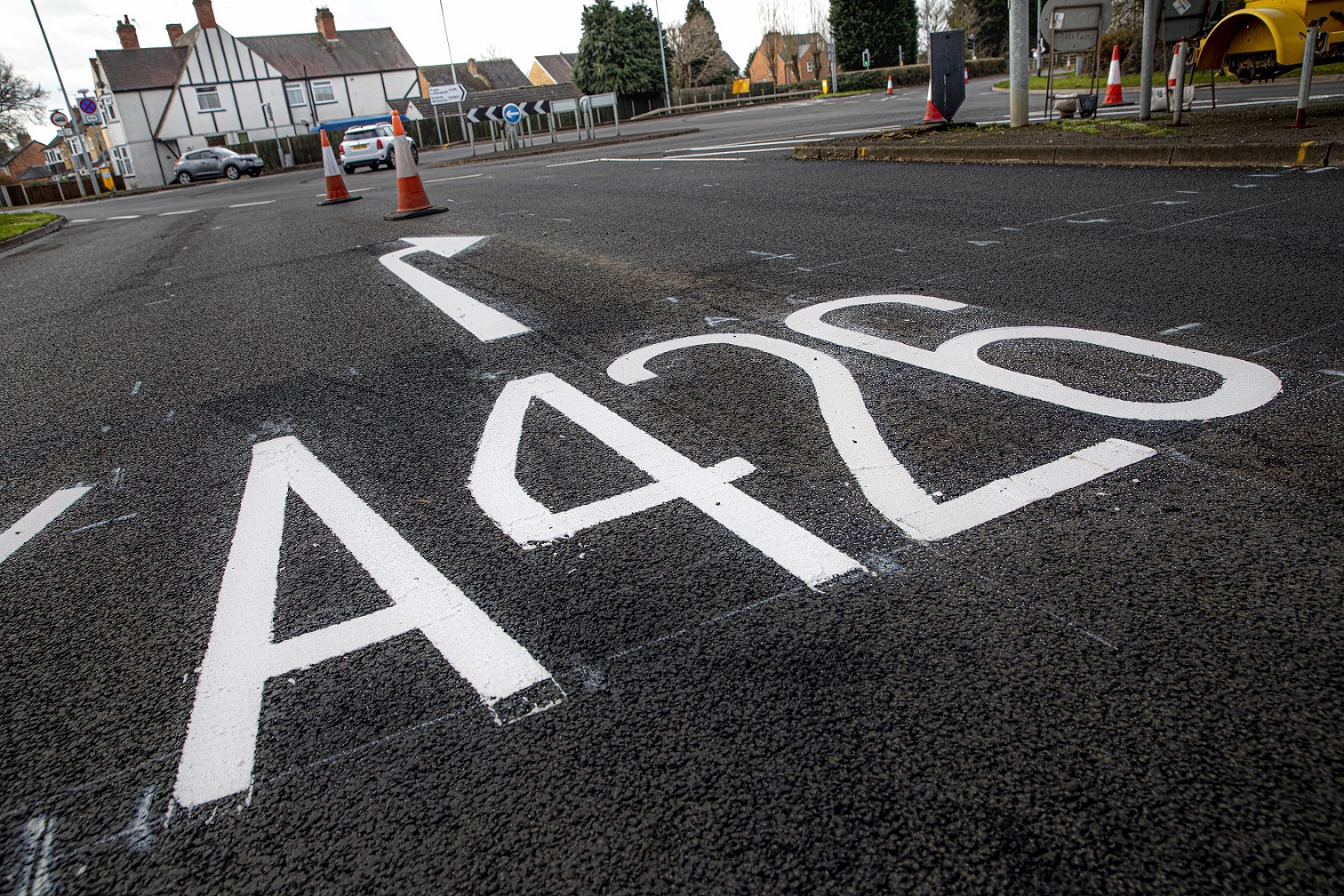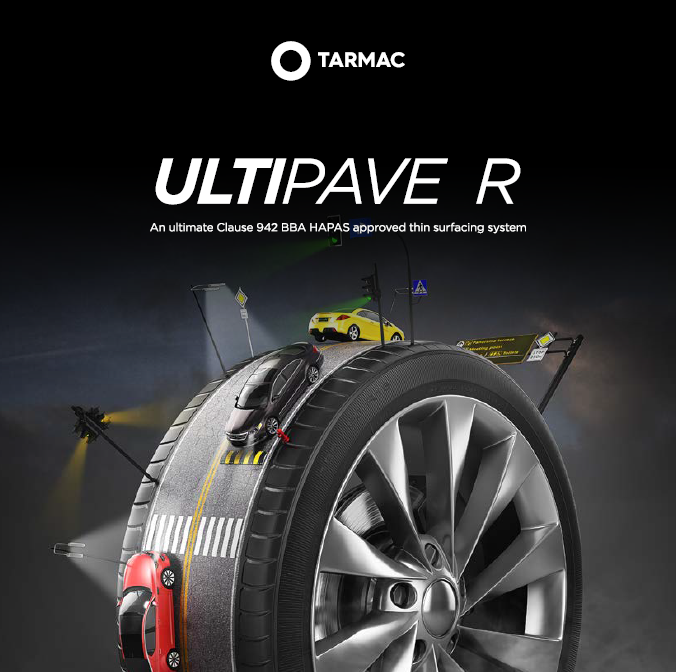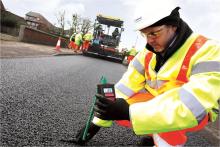
The building materils provider says that, with 4,800 tonnes supplied, the asphalt incorporates rubber from approximately 3,300 waste car tyres. it adds the asphalt will help Leicestershire County Council to deliver greener roads.
Locally supplied from Tarmac's Mountsorrel Quarry near Loughborough, the new rubber modified asphalt combines end of life tyres with warm mix asphalt technology, which is designed to deliver a significantly reduced carbon footprint.
Tarmac says the asphalt is supplied at lower temperatures than traditional mixes, which means it reaches the appropriate trafficking temperature sooner, allowing roads to reopen and get traffic moving quicker.
Leicestershire County Council was awarded £5m from the Local Highways Maintenance Challenge Fund, allocated by the Department of Transport, to carry out the works on a key part of the network which includes resurfacing and strengthening sections of the carriageway at the end of their life cycles. The Council was supported in its bid by the team at Tarmac who provided detailed information on the sustainability benefits of using warm mix and rubber modified asphalt technology.
Brian Kent, national technical director at Tarmac said: “It's fantastic to see Leicestershire County Council embracing the many benefits of these new asphalt technologies and become the first authority to use the new material for a project of this scale."
Tarmac says that, in comparison to conventional hot mix asphalt, the use of the warm mix technology has delivered a saving of over 14 tonnes of CO2 in total – the equivalent to the emissions generated by cars travelling an estimated 116,000 kilometres.
Trevor Pendleton, Leicestershire County Councillor, cabinet member for highways and transport said: “Using recycled and carbon-friendly components for our road improvements emphasises our commitment to improving the environment. Work on both the Blaby and Harborough bypasses is already almost completed with minimal disruption to motorists and I am delighted to see the environmentally-friendly innovations used in this project.”
Tarmac’s rubber modified asphalt incorporates the rubber of up to 500 waste stream tyres in every kilometre of highway surfaced, depending on the thickness of the road. This would help to reduce the up to 150,000 tonnes of rubber waste which is exported annually from the UK as fuel for cement kilns, primarily to countries in North Africa and the Indian subcontinent.







